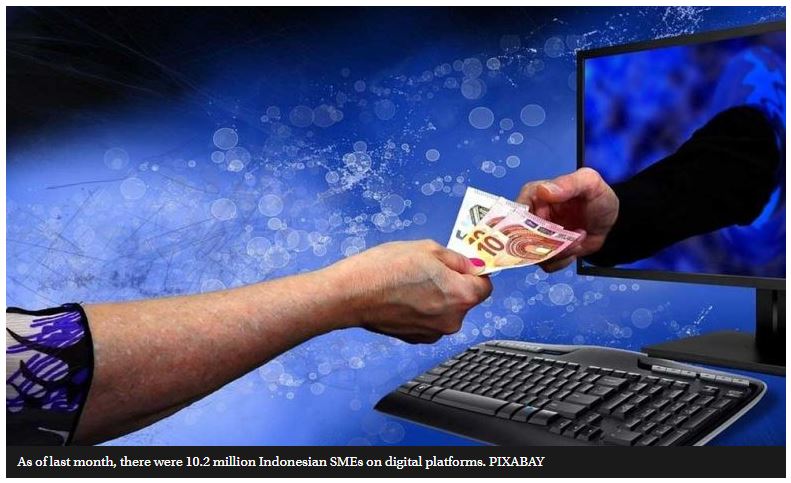Indonesia gov’t urges SMEs to digitise, get credit scores for easier financing
Indonesian government officials and industry players have called on small and medium-sized enterprises (SMEs) to go digital and make use of fintech platforms to build for themselves a positive online track record and gain credit scores for easier access to financing.
Leonard Theosabrata, president director of SMESCO, a government institution responsible for training and facilitating SMEs, said one of the reasons why SMEs struggled to receive funding was the lack of a credit score.
“Without proper credit scores, banks will not know if a business is risky or not. Therefore, it is important for SMEs to digitise and use fintech or point-of-sales [POS] apps to get credit scoring,” he said in a webinar hosted by KoinWorks on December 3.
He went on to say that SMESCO was planning to develop a credit-scoring system in the future based on various data, such as online sales, but the institution was now focusing on helping SMEs board digital platforms.
Indonesia’s small businesses, which account for more than 60 per cent of the country’s gross domestic product (GDP) and employ a vast majority of the labour force, have been hit hard by the Covid-19 outbreak, as the economy has entered a recession with economic contraction recorded in the second and third quarter.
According to a Mandiri Institute study, SMEs that have an online presence are more resilient, as they are more likely to continue producing and selling goods to survive the economic slowdown.
Minister of Cooperatives and SMEs Teten Masduki stated earlier this year that 10.2 million SMEs were on digital platforms as of last month. The share of SMEs using online platforms relative to the overall number of small businesses, thus, rose to 16 per cent from 13 per cent earlier this year.
However, the minister also said this week that there were still 23 million small business owners in the country with no access to financing from the banking sector. Fintech could help boost financial inclusion for these businesses, he said.
Meanwhile, Financial Services Authority (OJK) data show that the country’s fintech lending platforms have disbursed a total of 56.16 trillion rupiah ($3.98 billion) in new loans as of October this year, marking a 23.88 per cent year-on-year increase. Meanwhile, in the same period, outstanding loans stood at 13.24 trillion rupiah, up 18.39 per cent year-on-year.
Meanwhile, fintech platform KoinWorks chief operating officer Bernard Arifin also emphasised the importance of SMEs to digitise and create a positive track record so that fintech companies could create a good credit score based on online data.
With many SMEs only starting their business, they often do not have reliable asset and cashflow data, Bernard added.
“Digitising does not mean instant success for SMEs . . . The most important thing is to keep nurturing these budding businesses with continuous training programmes,” he said at the same event, adding that SMEs needed to learn skills such as digital bookkeeping and business management.
The fintech firm reported that, throughout this year, more than 30,000 SMEs had requested productive financing through its peer-to-peer (P2P) lending platform, in which KoinWorks disbursed up to 2.5 trillion rupiah in loans.
Bank Indonesia SME development and consumer protection director, Bandoe Widiarto, echoed the statement, stating that, even though there was an improvement in the number of SMEs going digital, small businesses often still lacked the capacity to grow.
Hence, training to use such financial aid was necessary, he said. “After they secure financing, it’s important to train and mentor these SMEs, because giving them only theories about good business is not enough,” Bandoe said.
Bedding store owner Dedy Liem also said SMEs needed business coaching, especially in handling finances after receiving funds from either banks or fintech platforms.
“Fintech has actually helped solve SMEs funding problems . . . However, if we have the money but no skills in management, we can make bad business decisions and there could be dire consequences for our business,” he said.
THE JAKARTA POST/ASIA NEWS NETWORK


 Thailand
Thailand




